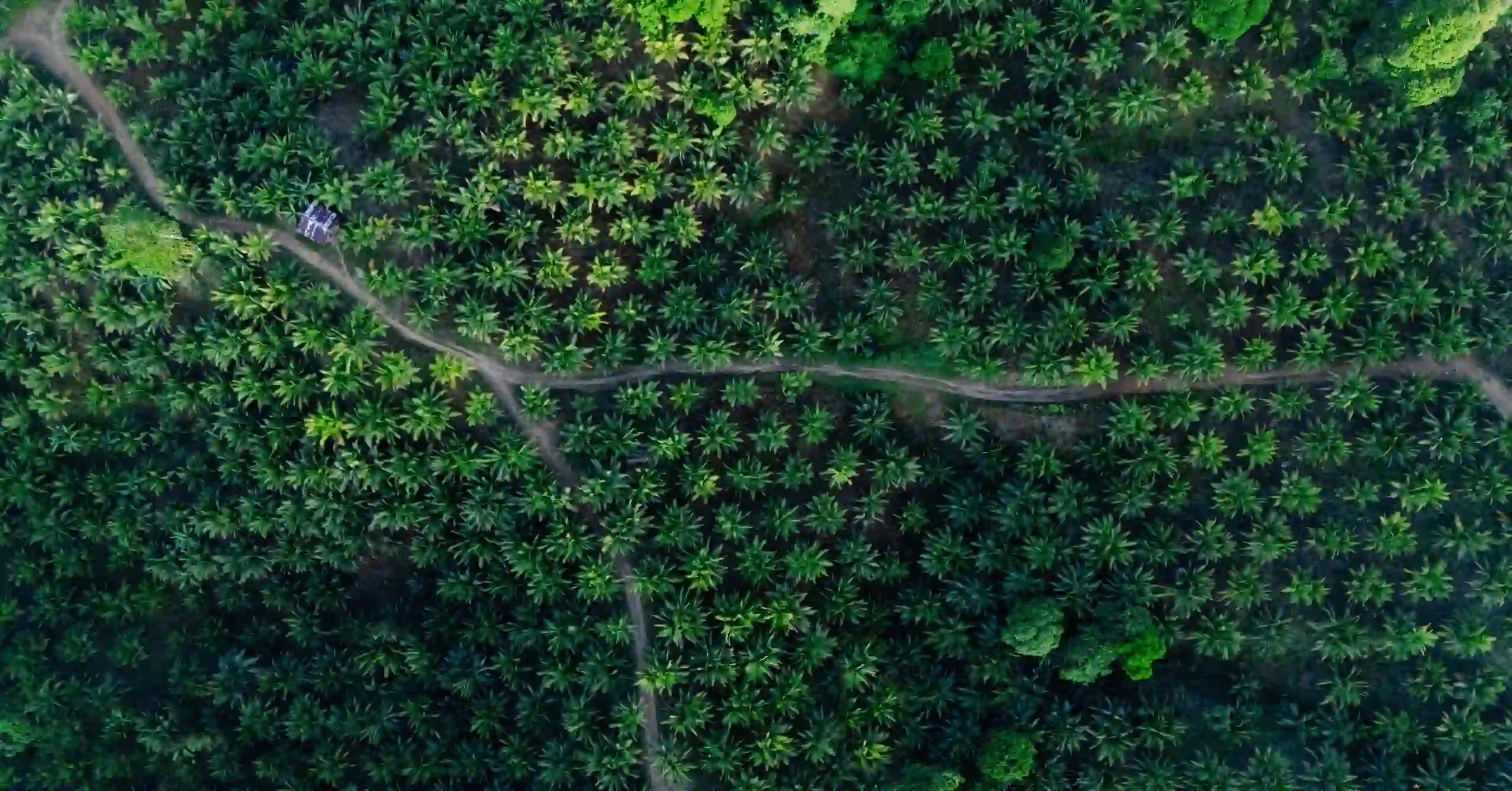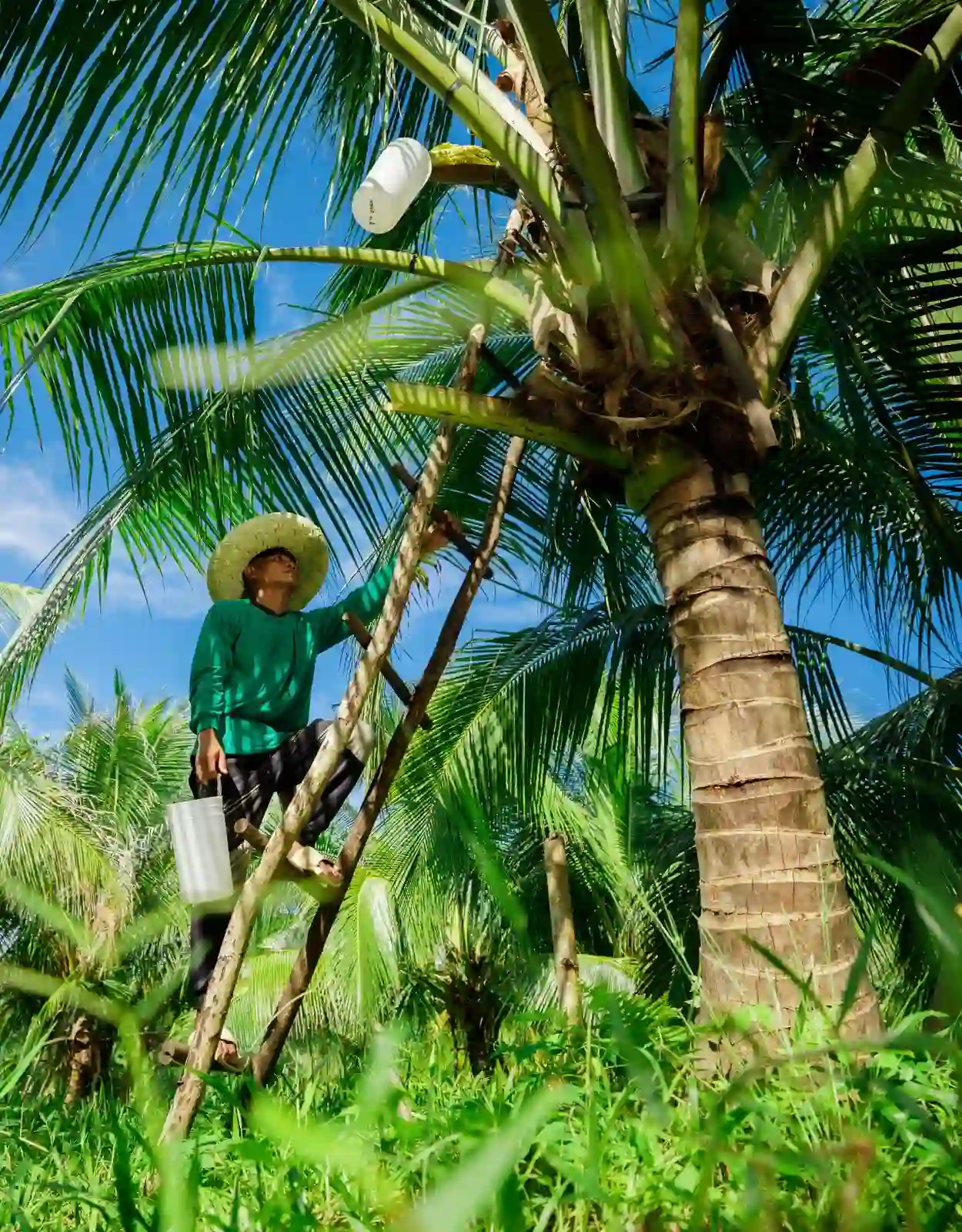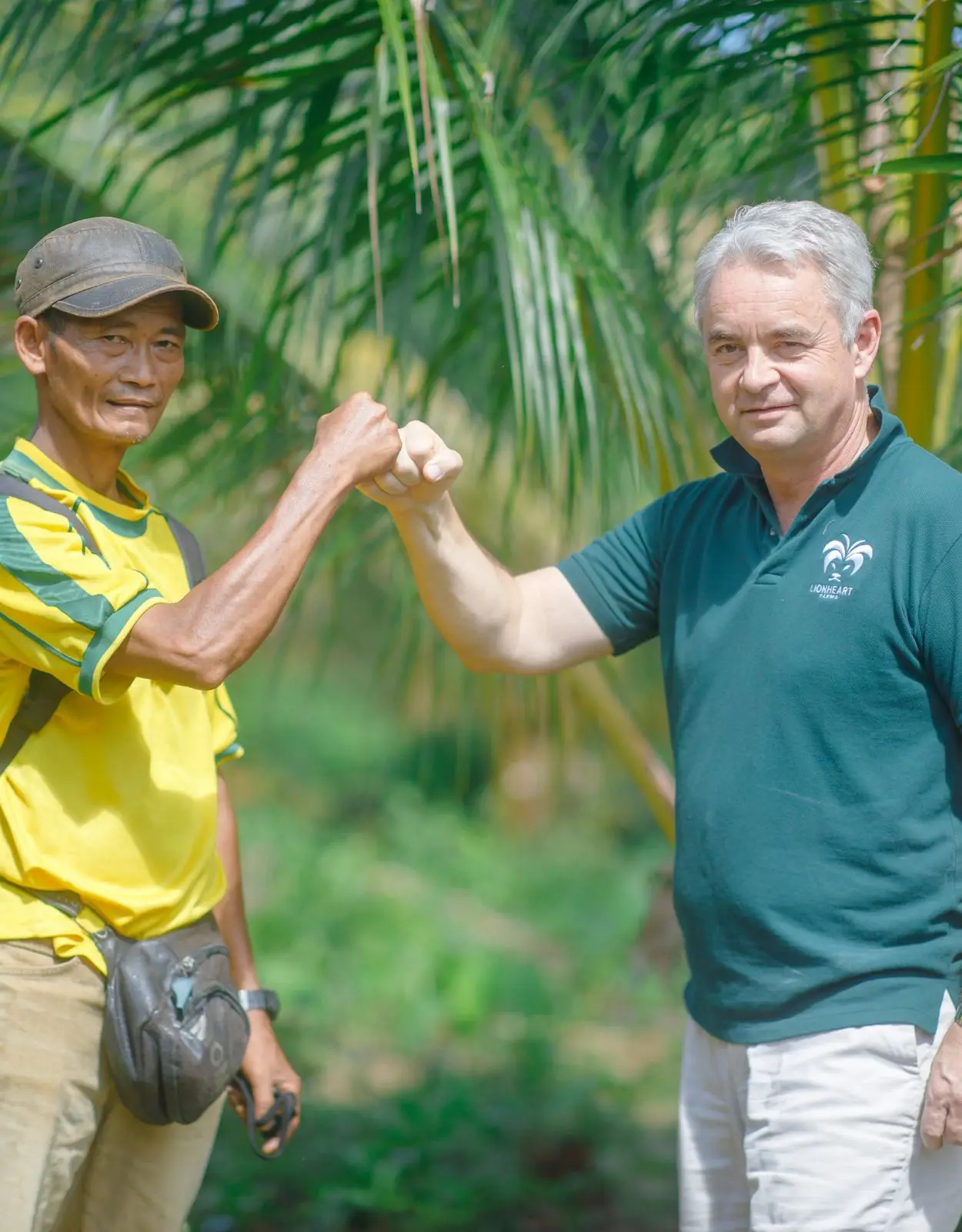Lionheart Farms: Cultivating a Sustainable Future for Coconut Farming in the Philippines

By empowering local coconut farmers, the once-humble Palawan-based startup has built a thriving agricultural enterprise.
Palawan-based coconut products producer Lionheart Farms was founded by Anders Haagen, a former investment banker, and Christian Eyde Moeller, a food industry executive, in 2015.
Initially drawn to coconut farming as an investment, the founders soon realized that success required more than simply planting and harvesting.
They saw an opportunity and utilized what Haagen refers to as “integration tools” to support a full-fledged business.
By “integration tools,” Haagen is pertaining to the ecosystem that supports a functioning agricultural enterprise—from financing and land registration to workforce management, sourcing organic fertilizers, and ensuring compliance with local government regulations. Most critically, the model includes a strong go-to-market scheme.
Unlike traditional producers that refine coconuts into oil, Lionheart focuses on higher-value coconut-based products—such as nectar, sugar, and aminos—produced across its 3,500-hectare farm in Palawan. The company’s operations, divided into 20 fifty-hectare plots surrounded by natural forests, now support over 2,000 local jobs and demonstrate how agricultural innovation can generate lasting community impact.
Through its operations, Lionheart Farms seeks to create a bridge between Filipino coconut farmers, including those residing in remote communities and global conscious consumers. Its aims to deliver the benefits of coconut flower nectar (sap) via sustainable, direct-from-farm experiences, so that consumers worldwide can enjoy products that are not only delicious but also ethically and environmentally conscious.

“Lionheart’s integrated model from planting palms to exporting certified shelf-ready products is quite hard to replicate for a young entrepreneur,” says Haagen.
“But it works in smaller bites, too: find a local market for sap products and put in place some of the tapping models you can find anywhere using AI now and you can start with modest capital.”
Lionheart’s mission is centered on transforming lives both within the communities it operates in and across the broader coconut industry. The company works to empower the next generation of Filipino farmers by equipping them with the tools, knowledge, and opportunities needed to thrive in a modern agricultural economy. Beyond creating jobs, Lionheart fosters dignified and sustainable livelihoods, ensuring that farming communities move beyond mere survival toward long-term growth and prosperity.
At the heart of its mission is a deep commitment to connection. Lionheart links local farmers directly to global markets, where the value of their hard work can be recognized and rewarded. This approach not only strengthens rural economies but also allows consumers worldwide to take part in a transparent and ethical supply chain. Guided by regenerative and biodynamic farming practices, Lionheart aims to cultivate not just crops but also a healthier planet, ensuring that environmental stewardship and community upliftment go hand in hand.
At the helm of Lionheart’s operations is Moeller, its CEO and Co-Founder, who now resides with his Filipino wife in Rizal, Palawan.

Transforming Traditional Raw Materials Into Saleable Consumer Products
Since beginning operations in 2018, Lionheart has cultivated enough palms to sustain full-scale production. Through its consumer brand CÓCOES, the company has expanded from producing coconut aminos to a broader range of organic and sustainable condiments, syrups, and beverages.
In May 2024, Lionheart launched The Power of Slow, a line of plant-based beverages that aligns perfectly with global market trends.
According to a report by market intelligence and consulting firm Precedence Research, the global plant-based beverage market is valued at US$37.26 billion in 2025, with the Asia Pacific accounting for 69% of the total.
The sector is projected to grow to US$88.72 billion by 2034 at a CAGR of 10.12%, driven by the increasing adoption of vegan and health-conscious diets.
This puts the Philippines and companies like Lionheart in a strong position to capture value from both domestic and export markets.
Haagen says the company has reached profitability as their palms mature beyond the juvenile stage, allowing them to accelerate production and innovation.
Lionheart Farms was honored with the Global Excellence in AI, Food, and Agriculture Award at the 2025 International Tax and Investment Conference, held on March 26 at the Manila Marriott Hotel. Organized by the Asian Consulting Group, the event recognized Lionheart Farms for its steadfast dedication to promoting sustainable agriculture through ethical, inclusive, and forward-thinking business practices.
National Push for Replanting: A Renewed Coconut Industry
For decades, the Philippine coconut industry has struggled with aging trees and stagnant productivity.
“Sadly, progress in coconut farming has not changed much,” Haagen admits. “We were hoping the voluntary carbon markets would provide subsidized financing for replanting, but that hasn’t materialized.”
However, a renewed national effort may change that. The Philippine Coconut Authority (PCA), under the directive of President Ferdinand Marcos Jr., has launched a massive replanting program aiming to plant 15.3 million new coconut trees in 2025.
As outlined in the Philippine Coconut Industry Development Plan 2024–2034 (PCIDP 2024–2034), the country targets the planting of 100 million coconut trees by 2028.
To support the full rollout of this initiative, the President has approved the PCA’s proposal to raise the fertilization program’s budget to Php2.5 billion for 2025.
PCA Administrator Dexter Buted announced during his June 2025 visit to Iloilo City that an additional Php1 billion has been allocated for the coconut tree planting and replanting program.
The Philippines currently remains the world’s second-largest coconut producer, with an annual output of 14.7 billion nuts from approximately 345 million coconut trees.
Read more:
From Survival to Global Success: CEO Awards Honoree Justin Uy
LOOK: How Palawan Women Seaweed Farmers Keep Coastal Families Afloat
This Foundation Helps Make a Greener Tomorrow Through its Reforestation Drive in Cebu



